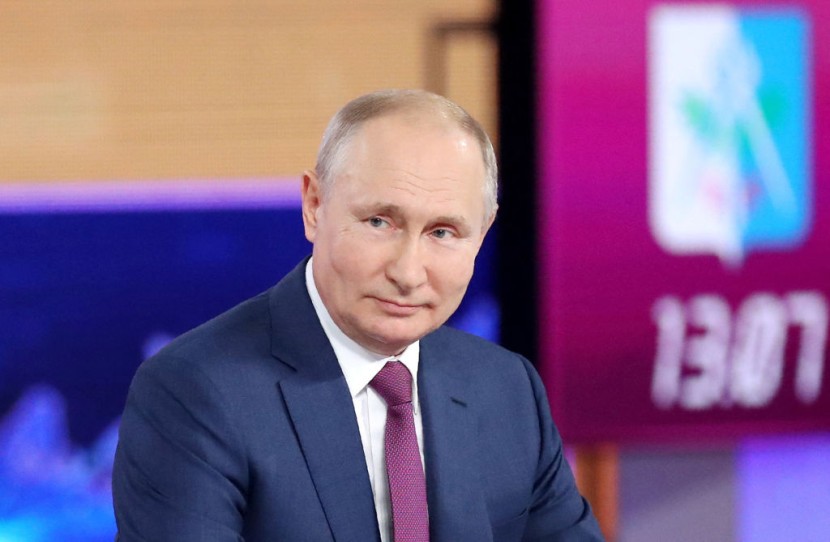
Russian President Vladimir Putin warned US President Joe Biden at the June 16 US-Russia conference in Geneva that his country was opposed to US soldiers deploying in surrounding Central Asian countries.
The previously undisclosed remarks appeared after the Taliban took control of Afghanistan following the start of the US withdrawal. Thousands of Americans and Afghans who aided the American effort are currently being evacuated by US forces.
Putin suggests Biden scrap plans in Central Asia
A Russian foreign ministry official backed up Putin's views in a statement to the Wall Street Journal on Thursday, saying the circumstances in Afghanistan had not changed his country's position. Putin is also said to have told Biden that China will not allow the US military to operate in Central Asian countries.
Russia is bolstering its position through diplomacy and military action. In recent weeks, the US adversary has held combat games near the Afghan border with Tajikistan and Uzbekistan.
Kazakhstan, Turkmenistan, Tajikistan, Uzbekistan, and Kyrgyzstan are all "stans" in Central Asia that were previously part of the Russian empire and have long been considered part of Russia's "sphere of influence." Furthermore, both Russia and China put pressure on these countries to reduce military cooperation with the US.
The Russian resistance to US forces in Central Asia will most certainly make it more difficult to maintain stability in the nation after the withdrawal. Because there are no bases in Central Asia, the US must rely on sites in the Persian Gulf, such as Al Udeid in Qatar, where the US has a significant military presence.
Hundreds of Russian armored vehicles and artillery pieces were readily seen hundreds of miles away, on the Tajikistan border, as the Afghan government disintegrated this week in Kabul and the US tried to speed up its evacuation attempt.
They were taking part in a high-profile military drill roughly 12 miles from a Taliban stronghold, and they were there to make a message, according to a Russian general. The exercises indicated that Russia will now be the one to protect Central Asia from any turmoil next door.
In the protracted post-Soviet struggle for power and influence in Central Asia, dubbed the "new Great Game," an increasingly powerful participant has arisen from Afghanistan's disarray and confusion: Russia, at least in security matters.
Russia is ready for Taliban win in Afghanistan
Russia's strengthened stance in Central Asian security problems is part of a larger shift brought about by the Taliban's ascension to power. With the West's retreat, Russia, China, and Pakistan hope to gain influence in regional affairs while the US and India stand to lose.
While the chaotic American pullout reminded Moscow of Russia's humiliating 1989 exit from Afghanistan following a disastrous 10-year operation, it was a global propaganda victory for Moscow. Russia has sought influence in Latin America and Eastern Europe by claiming that the United States cannot be trusted. The secretary of Russia's Security Council, Nikolai Patrushev, has warned that America's allies in Ukraine may soon be disappointed as well.
President Ashraf Ghani's government's fast fall was also a vindication of Russia's years-long strategy of cultivating a diplomatic connection with the Taliban. While Western diplomats hurried to evacuate Kabul this week, Russian officials remained, with the Taliban assuring the Russian Embassy's protection.
The Taliban guaranteed that its military gains would not pose a threat to Russia or its interests at Russia's most recent round of talks with the Taliban in Moscow in July. Although the Taliban is legally listed as a banned terrorist organization in Russia, the country has hosted the group for many rounds of talks, making any association with it a potential felony, as per the New York Times.
When the Taliban took control of Afghanistan, Russia was prepared for the quick changes following years of planning to set the framework for relations with the group, which it still considers a terrorist organization.
Russian Foreign Minister Sergey Lavrov said this week that Moscow was "not in a rush" to accept the Taliban as Afghanistan's new rulers, but that there were "encouraging signals" of their willingness to allow other political organizations to join the government and allow girls to attend school.
In 2003, the Taliban was added to Russia's list of terrorist organizations; and Moscow has yet to take anything to remove them. Russian law makes any communication with such groups illegal, but the Foreign Ministry has reacted to inquiries about the seeming inconsistency by arguing that its interactions with the Taliban are critical to international efforts to stabilize Afghanistan, as per SFGate.
Related Article: Joe Biden Discusses Military Withdrawal in Afghanistan With Boris Johnson; World Allies Express Concerns at US President's Poor Communication








